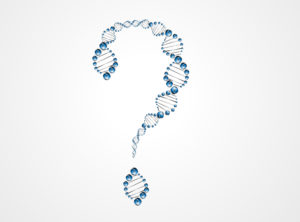“How do you like the name Jack?” the woman on the phone asked.

On April 26, 1964, a nurse came into the hospital room of Dora Fronczak, who had just given birth to her young son, Paul. She told Mrs. Fronczak that it was time to take the baby to the nursery (at that time newborns did not stay in the room with the moms), took the baby, and left. A few hours later, another nurse came into the room to take young Paul to the nursery. It was then that everyone realized a mother’s worst fear: Her infant had been stolen.
Authorities were able to determine how the woman left the hospital and that she got into a cab, but they were never able to find the woman. However, in 1965, a small toddler-aged boy was found, abandoned outside a store in New Jersey. Blood tests were not inconsistent with him being Paul Fronczak (DNA testing was not available), and there were no other missing children cases in the area that were matches. The little boy was sent to Chicago as Paul Fronczak and the case was closed.
However, as an adult, Paul Fronczak began to suspect that the couple who raised him were not his biological parents, and in 2012 Paul underwent DNA analysis to test his suspicions. The results showed that indeed, he was not the biological son of Dora and Chester Fronczak. His next step was to enlist the help of a genetic genealogist to assist him in finding his true biological parents and his identity.
By conducting “familial searches” using commercially available DNA databases like 23andMe and AncestryDNA and many resources, the genealogist’s group found a match to his DNA on the east coast. Further groundwork, discovered that this family was indeed Paul’s…now Jack.
The knowledge of Jack’s true identity didn’t bring with it a joyous union of the adoptive family who had raised and loved Jack (as Paul) with the biological family who had pined for him over the years as many might imagine.
Jack’s biological parents and one of his siblings had passed away, and much of his story with them. The story that remains is one of mystery and intrigue. He has a twin sister, and he and his twin sister went mysteriously “missing” around age two. His biological parents told the father’s side of the family that the twins were with the mother’s family, and not to ask questions. Similarly, they told the mother’s side of the family that the twins were with the father’s family and also not to ask questions. The disappearance was never reported. Family albums that had pictures of the twins were altered to remove any evidence that the children ever existed. Jack, does not know what became of his twin sister, Jill.
Jack knows his biological origins, but he doesn’t know why he was abandoned or what happened to his twin sister. The Fronczaks still do not know what happened to Paul Joseph Fronczak, stolen from his mother’s arms that day in 1964. A stolen baby case is now cold again. A new mystery and another missing person. At the center of it all lies DNA.
When Answers Yield Questions
This story illustrates the power of asking questions to find the truth. It’s what scientists do. Day in. Day out. This story also illustrates what happens when you ask questions to find the truth: Truths can be confusing, sometimes unpleasant, and often lead to more questions. Many of us who have pursued training in the sciences relish the messy answers and puzzles. However, many people are not so comfortable with answers that muddy the picture. We are taught in school that questions have answers. We take tests and get things right or wrong. So, it is not surprising that much of the general public enters into DNA testing with an expectation of definitive answers that are clear and actionable.

Jack’s story illustrates the power of DNA familial searches when combined with resources, determination and skill. It also brings to mind many ethical questions about the accumulation of genetic information in commercial DNA biobanks like those being built by 23andMe and AncestryDNA. Ethical concerns and discussions of guideline development, protections of rights, etc. have swirled around official databases such as CODIS for years. We have even written about how familial searching works and its promise and ethical dilemmas in the criminal forensics environment. However, little discussion has happened around commercial DNA databases and biobanks.
Such discussion would include questions about access, protections and informed consent. Who has access to the information in these biobanks for research? How are the individual identities associated with the genomes protected? Can the systems be hacked from outside? What are the guidelines for gaining informed consent when someone mails a swab in for testing? How does the business ensure that the sample was collected voluntarily? What obligation do they have to do so? Can a sample be collected by someone with guardianship or power of attorney?
Although these biobanks have noble goals of connecting people with their past or helping people better understand their health risks, there is little protection governing the misuse of the information in these databases. For instance, could insurance companies use these DNA databases to identify populations based on geography or ethnicity that have higher proportions of genetic alleles that are associated with chronic diseases? Then could such information be used to deny people from these populations coverage for these diseases, even though the associations that are known are not cause-effect, may be heavily dependent on environmental influences and the totality of an individual’s genetic background?
The technology and information gathering have progressed exponentially, while the understanding of or even the willingness to discuss the risks involved in maintaining such information databases and biobanks have proceeded at a snail’s pace.
Further Reading on the Fronczak Case
Website, Paul Joseph Fronczak The Charley Project.
Video, news report about the case.
Related Posts
Michele Arduengo
Latest posts by Michele Arduengo (see all)
- The Casual Catalyst: Science Conversations and Cafes - July 18, 2024
- Cancer Moonshot: Solving Tough Problems - May 28, 2024
- Automated Sampling and Detection of ToBRFV: An Emerging Tomato Virus - April 25, 2024

Your style of writing is incredible! I read many news stories and articles every day and I don’t recall reading one such as yours. This story was not only captivating but your written work was just as amazing!
In my search for updates to this mystery, after watching a TV program that aired tonight, I landed on your page. The eloquence, the flow and selection of words, left me impressed.
Thanks! Glad you enjoyed the post. Michele